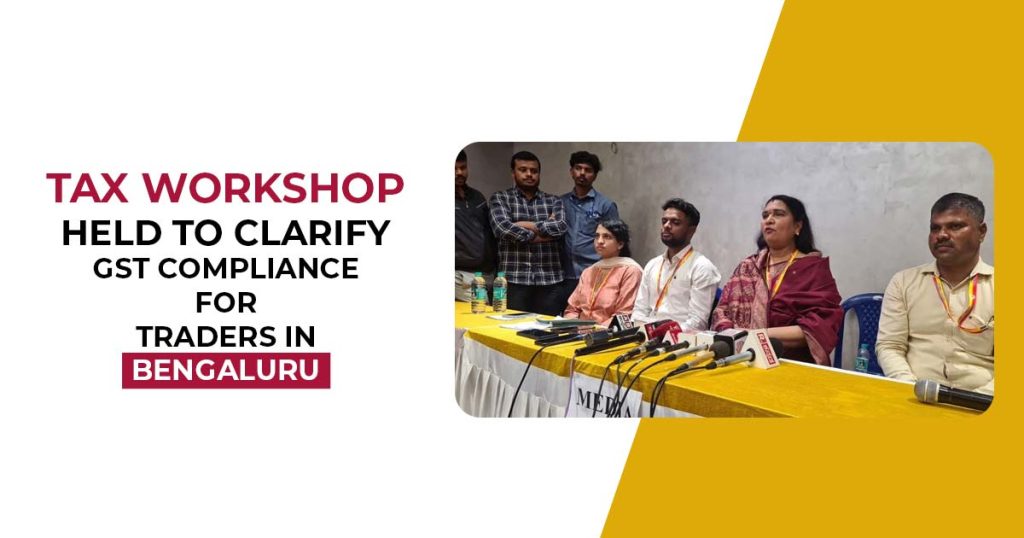
The Government of Karnataka and the Tax Department, addressing rising concerns among small business owners over GST demand notices and compliance, have organised a tax awareness workshop in Bengaluru city.
Meera Suresh Pandit, Joint Commissioner of GST, is leading the session, highlighting key issues and clarifying confusion regarding GST demand notices, registration requirements, and compliance processes.
GST Notice on Transaction Data
Pandit, in the session, has outlined that GST notices issued to small traders are not final orders, but instead, intimations based on the transaction data collected via digital platforms like UPI, Paytm, and PhonePe.
Such notices are founded on the data we have obtained concerning your transactions. They are not final. You would be required to provide the documentation if your business deals solely in the exempted deals, so the officials can validate and close the case, Meera quoted. Also, the transactions of cash are being reviewed, and the objective of such notices is to validate that businesses follow the GST norms and not to penalise them arbitrarily.
Who should Register Under GST?
If the yearly aggregate turnover surpasses Rs 40 lakh for goods or Rs 20 lakh for services of a trader, then the GST registration is obligatory, Pandit cited. But for those holding turnovers less than Rs 1.5 crore, the Composition Scheme is available, which permits traders to file returns quarterly and pay tax at a flat rate of 1%.
18% GST Rate in Clarification Notice
Pandit, answering the confusion towards the 18% GST rate cited in many notices, mentioned that the same is only a default number. “Notices mention the upper cap of 18% as a default. This can be reduced if traders present proper documentation showing their actual tax liability,” she described.
Cash or Digital Payments
Pandit has addressed the misconception that traders who avoid digital transactions like UPI will escape the tax scrutiny process. Also, she said, “India ranks first in digital transactions. Whether it’s UPI or cash, all transactions are considered. Not using UPI won’t exempt anyone from tax laws,”.
Also Read: GST Crackdown Spurs Fear: Karnataka Traders Remove UPI QR Codes Amid Tax Notices
Support and Helpdesk for Traders
The department for helping the traders has set up helpdesks and a toll-free number 1800-4256-300, with trained staff available to guide business owners through registration and filing returns. Pandit cautioned against middlemen proposing unofficial services and asked the traders to validate the credentials before engaging with anyone claiming to represent the department.
What is taxable and exempt?
The workshop mentioned which items are exempt from GST. These comprise fresh fruits, vegetables, milk, unpacked food grains, academic education services, etc. Though processed or packaged goods like pickles, flavoured milk, condensed milk, and bakery items like pastries and cakes are taxable. Services such as PG accommodations and cosmetic treatments at diagnostic centres are imposed to tax if they surpass the specified annual limits.
Free Online GST Registration
Pandit mentioned that GST registration is online and has no cost, and requires only pertinent documentation. She reminded traders that vendors are not filing the GST out of their profits; they are collecting the same from customers and depositing the same with the government.
Final Message
From the GST department, the session ends with a message that it is open to dialogue, devoted to transparency, and ready to assist traders in comprehending and complying with the law. Pandit concluded, “It is our responsibility to help you. Please don’t panic. Visit us, talk to us, submit your documents, and we will resolve your concerns.”









